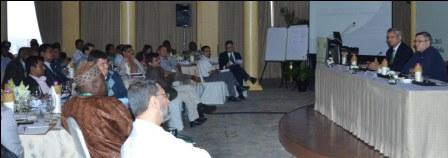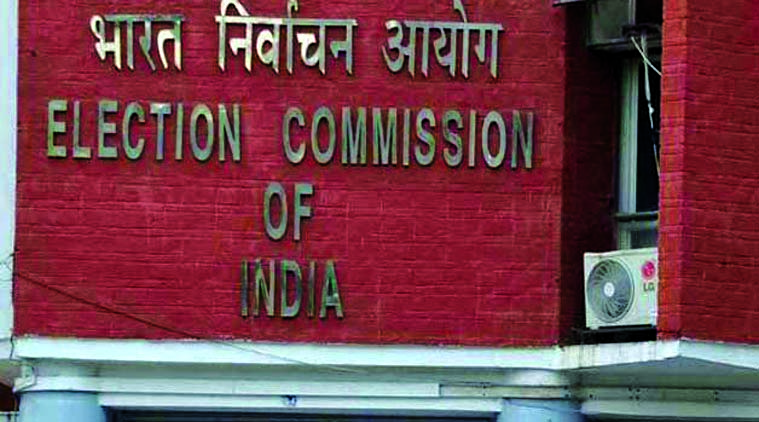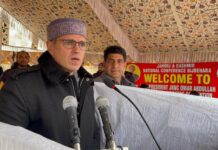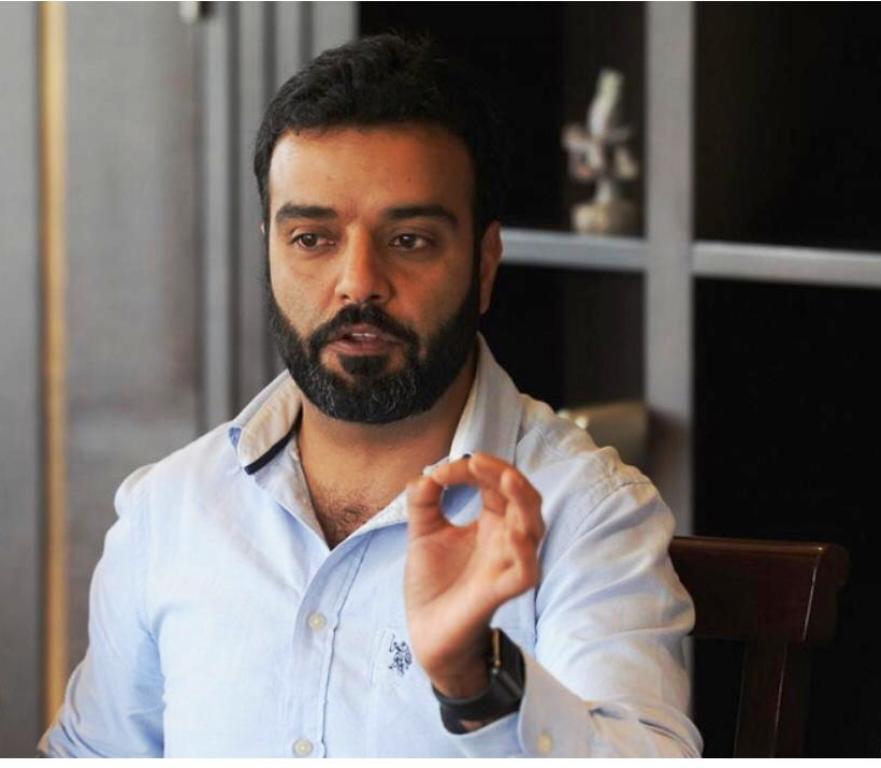KL Report
SRINAGAR
Speaking on the topic of ‘Performance Management and its Political Dimensions’ and replying questions during the interaction session at the International Workshop on Government Performance Management in Delhi Wednesday morning, the Jammu and Kashmir Chief Minister said that performance measurement in government involves three factors of inputs, outputs and outcomes. “It is, however, the outcome which is the most significant.”
As per a statement Chief Minister underscored the strong need for shifting focus from traditional approach and broadening the contours of accountability system. This, he said can be achieved by creating a framework based on certain critical indicators to measure the outcomes.
“It is a well established principal that measured things tend to get done, and if results are not measured, success cannot be ascertained and repeated as also we cannot learn from failures,” he added and said that the performance of a political government mostly depends on the status of delivery and outcomes of development programmes. However, he said that the good performance of a government does not necessarily win votes in the elections as in our Country religion, caste, region and other aspects impact the polls.
Omar has said that the status of performance by the ministers and bureaucrats at the end of the year based on the outcomes and results of the programmes targeted by each department for completion and delivery in a particular year impacts public perception and helps to learn from shortcomings.
The chief minister has said that the Result Framework Document Scheme launched in the state this year in 33 government departments is an important initiative in this direction. He has said the enlistment of the key objectives of each policy initiative of a department and specified ways and actions of achieving these objects in a fixed time frame is what is required today. He said the strategy will synchronize the means and ends enabling the measurement of performance in a much easier way. He said this initiative is a befitting and scientific scale to assess the functioning of departments and individuals. He said it will also help in a great way to bring in accountability and transparency at all levels in the administrative functioning.
The Chief Minister has lauded Performance Management Division (PMD) of Cabinet Secretariat government of India with whose support Jammu and Kashmir has been able to prepare the RFDs for 33 government Departments for the year 2013. He has expressed hope that it would prove to be the successful exercise.
Omar Abdullah said that political executives are elected every five years while the tenure of a career bureaucrat is over 30 years. “In other words there is an established mechanism for reviewing the performance of political executives every five year while no such mechanism exists for bureaucracy. Therefore, I believe that the performance management has much more to do with the civil servants as well,” he said and added that the civil service as an entity is needed to be programmed to engage itself consciously for achieving outcomes rather than focusing only on the outputs. He said the outlook knowledge, skill and attitude of civil servants must also relate to inter-generational dimensions of the socio-economic milieu.
“There is an immediate call for innovations. Our policies and implementation strategies must factor in the end user perspective. Hence, the name of the game has to be building partnership and stake holder ships,” he said adding that the most difficult challenges faced by reformers is establishing accountability for the observable outcomes of public policies and programmes. “If a programme has failed – is it the fault of bureaucracy or politicians? – the performance management is key to answer this query in my opinion,” he maintained and said that the responsive standards of the government as a whole need to be costumed to the receptivity of the concept of intra-regional variations and their managements. He said administrative practices also need to respond to new problems surfacing in the wake of social change and delivery of justice.
“I also feel that the present system of appraisal for civil servants requires a review in order to plug the gaps in the performance management system. The appraisal should be based on process and not on individual rankings. It should be based on outcomes and should be consultative,” he said describing performance management an important instrument to reach out desired outcomes. He said if it is pursuit, it will create the confidence among the people in the political arena of the country. He said it will also work as a great force to contain the trust deficit among the people of the country.
The Chief Minister referred to enactment and implementation of Public Services Guarantee Act in the State. He has said 69 services of 12 departments have been brought under it and 40 more services are in pipeline including the services provided by Police Department. He has said this Act and the J&K Right to Information Act have received greater public acceptance and people have started utilizing these initiatives to demand time bound services from the Government and ask questions on its performance.
In reply to a question, the Chief Minister has said that some programmes are popular but do not deliver as expected, similarly, there are programmes which are not popular but deliver in a better way. He said withdrawing popular programmes and introducing reforms sometimes have political ramifications but we have to strike a balance and manage the performance in a befitting manner.
In reply to another question, the Chief Minister has listed peace and economic welfare as the two important challenges before his government in the aftermath of long period of militancy. He said peace initiatives have already been taken and a multipronged strategy to ensure equitable and inclusive development all across the State is under implementation. He said power sector has been focused to strengthen the State’s financial status and march on road to economic welfare. He said health and education are other sectors receiving priority attention. He said manning hospitals and schools in a State with difficult topography and mountainous geography puts challenges before the Government. He said his government has flagged these sectors as important service delivery ones. He said measures and new initiatives have been taken to improve health and education sectors in the State.
The delegates from Afghanistan, Argentina, Bangladesh, Benin, Bhutan, Brazil, Canada, Fiji, Jordan, Kenya, Malaysia, Maldives, Mauritius, Mexico, Namibia, Oman, Pakistan, Palestine, Peru, South Sudan, Tanzania, Turkey, Zambia, Zimbabwe and India are participating in the 12 day workshop organized by Institute of Public Enterprises (IPE) of Performance Management Division of Cabinet Secretariat Government of India.














